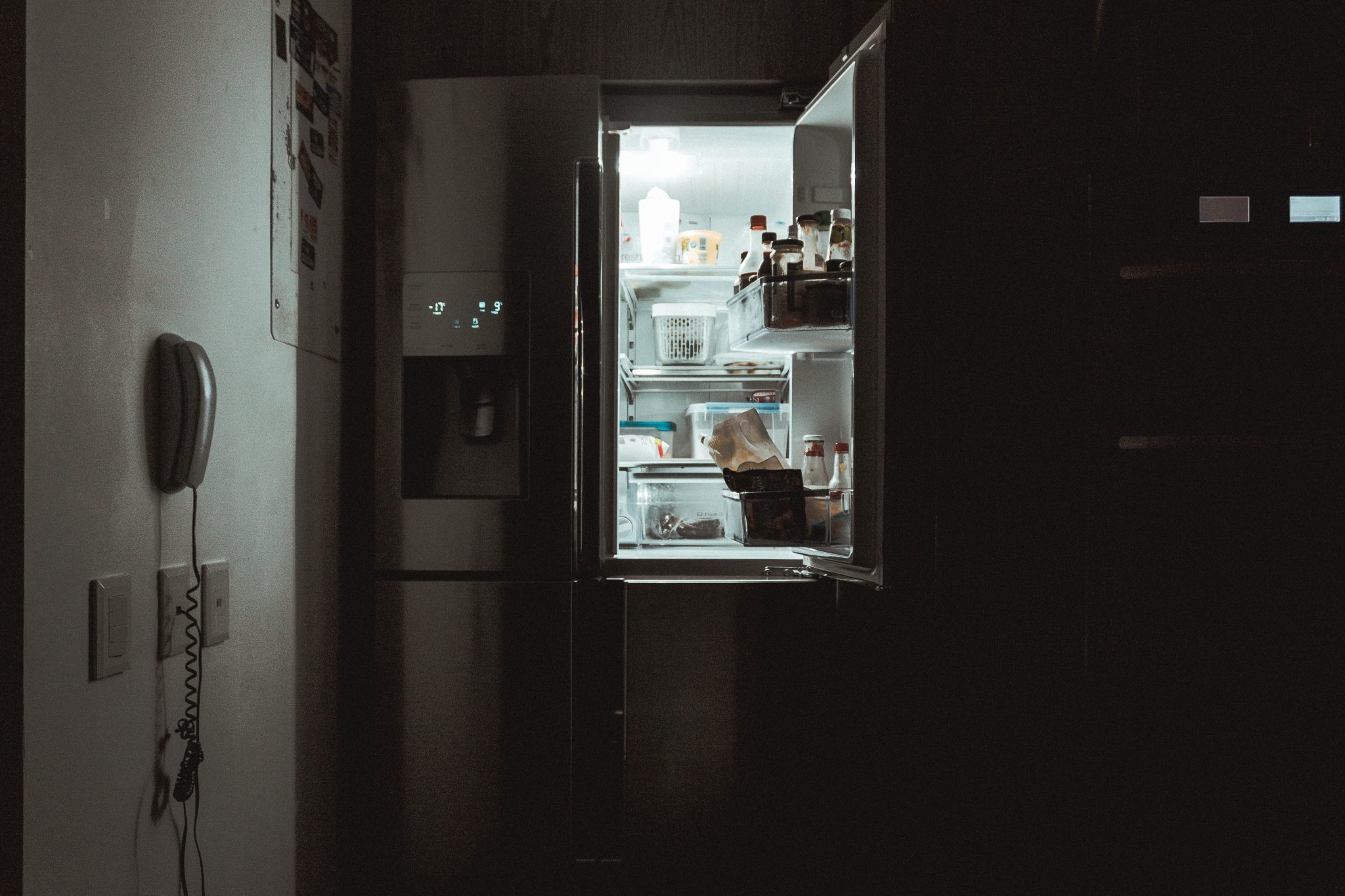Something I am often asked in clinic is, “Why am I always hungry at night?”. I used to wonder this same thing about myself. I would go through the day able to “eat well”, following my planned meals or maybe forget to eat a meal if I was busy. I’d get home and try to eat a “healthy” dinner. After dinner, I didn’t necessarily feel hungry, but I wasn’t quite satisfied either. I’d try to resist the urge to go to the cupboard and find a snack or some dessert. Sometimes I’d be able to but all too often, I’d cave. I’d end up opening the freezer for the ice cream or reaching for snacks from the cupboard. The feelings that accompanied these night time eating episodes were horrible. I felt guilty, like I was out of control and worried that I’d put on weight.
If you’ve experienced something similar to this, please know you are not alone. Luckily, I was able to get to the bottom of the reasons why I was always hungry at night and heal my relationship with food. I’ve helped many clients through the same thing.
In this article we will delve into what could be causing you to feel hungry at night, address myths about night time eating and lay out steps you can take to get on top of it.
Why am I always hungry at night? Some possible causes:
1. Not eating enough throughout the day
This is by far the most common thing causing increased hunger later in the day. Willpower will only work for so long if you aren’t eating enough food to meet your body’s requirements for energy, despite what diet culture tries to tell us. Biologically speaking, the body has a set amount of energy that it needs you to take in from food. This will vary day to day. If you don’t, then it is going to ramp up your hunger hormones, which drive you to eat. It can’t tell if you’re eating less because you want to drop a dress size or because you’re stuck on a desert island. All it knows is that it’s not getting in as much as it needs to function optimally. This is an evolutionary mechanism that humans have developed to ensure our survival. It is also one of the reasons that diets are so hard to follow.
Skipping breakfast or lunch means your body is going to need to compensate somehow. The same goes for limiting calorie intake or portions. 1200kcal a day is the calorie requirement for a toddler and it just isn’t going to cut it. I don’t condone calorie counting but as a general guide, if you are an adult human who is not eating at least 2000kcal most days (some people will certainly need more, some slightly less) you are likely going to experience biological signals to make you increase your food intake (aka. hunger).
Many people don’t realise that these biological signals can come in more forms than just a rumbling tummy.
For me, once I started eating enough during the day, I stopped feeling so hungry at night. I still often enjoy a snack or dessert after dinner, but when I do so I don’t feel guilty or out of control like I did when I was restricting myself.
2. Emotional hunger
If you find yourself asking “why am I always hungry at night?” or “why am I always hungry after eating” but think you’re eating enough in the day, emotional hunger could be the reason. Whilst we are often busy and distracted throughout the day, at night things tend to slow down. This means uncomfortable emotions that we may try to avoid have more of a chance to catch up to us. Many of us find food helpful for coping with emotions we’d rather not feel. Food can also temporarily fill other needs such as human touch or intimacy. There is nothing wrong with using food for comfort occasionally. However, if it is your main coping mechanism or your eating is causing you to feel distressed, this is something worth addressing. See my article on emotional eating for more information on dealing with emotional eating.
Often, I find that a combination of not eating adequately throughout the day AND emotions contribute towards clients always feeling hungry at night.
3. Medical causes
Certain medications and medical conditions can lead to feeling hungry at night. Commonly prescribed medications that can increase appetite include certain antidepressants, oral corticosteroids and mood stabilisers (for bipolar disorder, schizophrenia and depression). Medications used for ADHD usually suppress appetite during the daytime, leading to an increased appetite later in the day once the medication has worn off. Medical causes of increased appetite include an overactive thyroid amongst others. If are concerned that a medical cause could be affecting your eating then I recommend discussing this with you GP.
Does eating late at night really lead to weight gain?
A common myth is that eating at night somehow makes us gain more weight than eating the same amount during the day. Please rest assured that this isn’t true. If it was then every person in Spain would be stacking on pounds. Food counts for the same at night as it does during the day.
4 steps to tackle feeling hungry at night
Step 1. Eat enough throughout the day
I sound like a broken record here but it’s an important one. You need to eat enough and you need to eat regularly. For most people this looks like:
- Eating every 3-5 hours
- 3 main meals and snacks in between
- A source of protein, carb and fat in each meal to increase staying power and avoid blood sugar dips
You might like to experiment with doing this for a few days and observe whether it affects how hungry you feel at night.
Step 2. Add an afternoon snack
Many people find they have lunch around 12/1pm. They then don’t eat dinner until around 7pm or sometimes later. In line with point one, most people find that it feels good to leave no longer than 5 hours between eating. You can see how the afternoon is commonly a time of day when we leave too large of a gap between eating times. If this sounds like you, try adding in an afternoon snack. Something satisfying like cheese and crackers, yoghurt with fruit, leftovers, or a cookie should help to tide you over so you’re not so ravenous when the evening rolls around.
Step 3. Honour your hunger
If you feel hungry, go ahead and eat as soon as you can. If we consistently feed ourselves when we are hungry, we teach our body that it can trust us to give it the energy it needs. This sense of trust is necessary to allow us to feel a sense of control and avoid out-of-control eating episodes such as those that often happen at night.
Step 4. Check yourself for subtle restraint
Are certain foods off-limits to you? Are you sticking to particular portion sizes? When we limit what and how much we eat it increases psychological, as well as biological drive to eat. If I said to you, “don’t think of a pink elephant”, what pops into your head? It’s the same with telling yourself “I’m not eating chocolate this week”. The only solution is to allow yourself unconditional permission to all foods, in amounts that satisfy you.
If you’ve been on and off diets for a while, removing food rules and beginning to honour your hunger can be daunting and is often harder than it sounds. See my article on how to stop dieting and eat normally for more tips.






